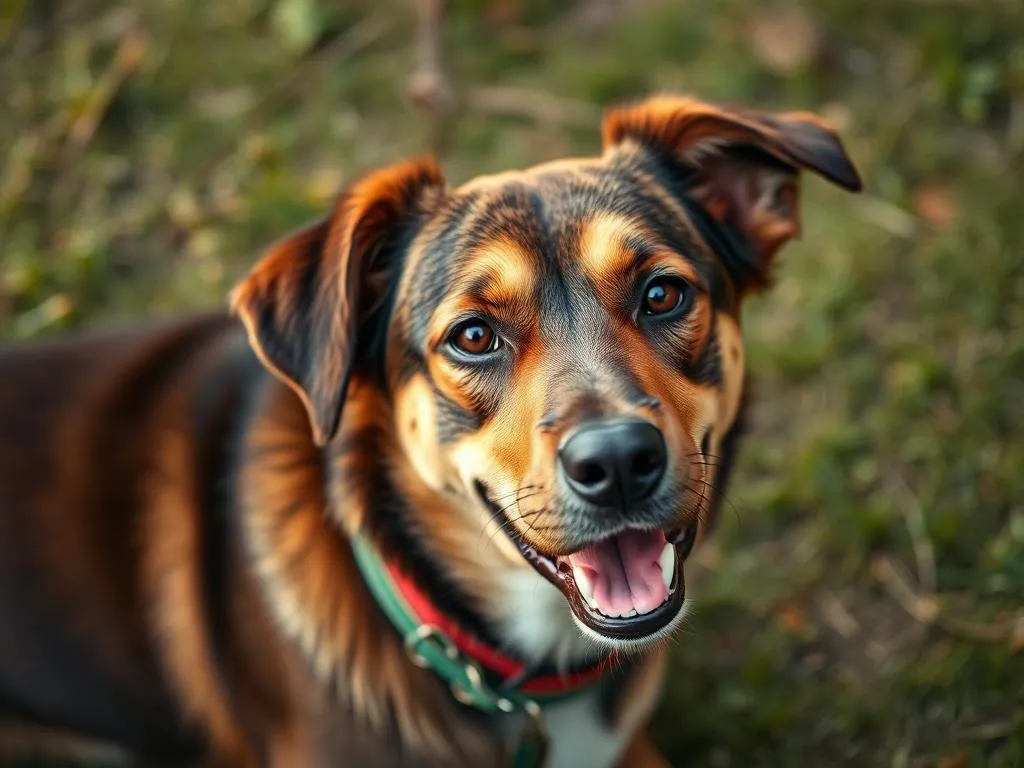
Choosing the right dog breed is crucial, especially when it comes to temperament. The friendliest dog breeds are often sought after by families and individuals who desire companionship and affection. Friendliness in dogs can be defined as their ability to interact positively with humans and other animals, characterized by sociability, playfulness, and a general affectionate nature. It’s essential to note that a dog’s behavior is influenced by various factors, including genetics, environment, and upbringing.
Understanding Dog Temperament
Factors Influencing Dog Behavior
The behavior of dogs is complex, shaped by a combination of genetics, environment, and training.
-
Genetics: Certain breeds are predisposed to specific traits, including friendliness. This genetic background plays a significant role in determining a dog’s natural temperament.
-
Environment: The surroundings in which a dog is raised can profoundly influence its behavior. Dogs that grow up in loving environments are more likely to be friendly.
-
Training and Socialization: Early training and socialization can help cultivate a friendly demeanor. Dogs that are well-socialized are typically more comfortable around people and other animals.
Measuring Friendliness
Evaluating a dog’s friendliness involves observing its interactions:
-
Interaction with Humans: Friendly dogs tend to greet people with enthusiasm, often displaying wagging tails and playful behaviors.
-
Interaction with Other Animals: A friendly dog usually displays a calm demeanor around other pets, engaging in play rather than aggression.
-
General Demeanor and Attitude: Friendly dogs often exhibit a relaxed and happy attitude, making them ideal companions.
Characteristics of Friendly Dog Breeds
Common Traits of Friendly Dogs
The friendliest dog breeds share several key characteristics:
-
Sociability: Friendly dogs thrive on interaction with people and other animals, often seeking out companionship.
-
Affectionate Nature: Many of these breeds are known for their loving behavior, often cuddling with their owners and seeking physical affection.
-
Playfulness: A playful attitude is a hallmark of friendly dogs, making them great companions for families and children.
Importance of Temperament Testing
Temperament testing can be an effective way to identify friendly breeds. These assessments help evaluate a dog’s behavior in various situations, providing insights into its sociability and temperament.
-
Overview of Temperament Tests: Tests typically involve observing the dog’s reactions to different stimuli, including interactions with strangers and other animals.
-
How They Help in Identifying Friendlier Breeds: By understanding a dog’s behavior through these tests, potential owners can make informed decisions about which breeds may be best for their lifestyles.
Top 10 Friendliest Dog Breeds
Labrador Retriever
The Labrador Retriever is renowned for its friendly and outgoing nature. This breed is highly sociable, making them great family pets. Labs are known for their playful demeanor and love for human interaction, often forming strong bonds with their families.
Golden Retriever
Similar to Labs, Golden Retrievers are incredibly friendly and affectionate. Their gentle temperament and intelligence make them excellent companions. Goldens are particularly known for their patience, which makes them great with children and other pets.
Beagle
The Beagle is a small breed with a big personality. Beagles are friendly, curious, and enjoy socializing with people and other dogs. Their playful nature and friendly disposition make them a popular choice for families.
Bulldog
Despite their tough exterior, Bulldogs are known for their loving and gentle temperament. They are incredibly loyal and form strong bonds with their families. Bulldogs are also known for their calm demeanor, making them great companions for a relaxed household.
Poodle
Poodles come in standard, miniature, and toy sizes, but all are known for their intelligence and friendly nature. They are highly trainable and enjoy being around people, making them excellent family pets. Their playful attitude adds to their charm.
Boxer
The Boxer is an energetic and playful breed, known for their friendly disposition. Boxers are great with children and are known for their loyalty and protective nature. Their exuberance and playful spirit make them a beloved family pet.
Cavalier King Charles Spaniel
This small breed, the Cavalier King Charles Spaniel, is known for its loving and affectionate nature. They are friendly with everyone, including strangers, and thrive on companionship. Their gentle demeanor makes them excellent therapy dogs as well.
Bichon Frise
The Bichon Frise is a cheerful and affectionate breed that loves to play. They are known for their sociable nature and adapt well to various living situations. Bichons are particularly friendly with children and other pets, making them a popular choice for families.
Shih Tzu
Shih Tzus are small dogs with big hearts. They are known for their friendly and affectionate nature, often forming strong bonds with their owners. Shih Tzus enjoy being pampered and are known for their playful and cheerful disposition.
Newfoundland
The Newfoundland is a large breed known for its gentle and friendly temperament. These dogs are incredibly patient and are often referred to as “gentle giants.” Newfoundlands are great with children and are known for their loyalty and protective instincts.
How to Choose the Right Friendly Dog Breed
Assessing Your Lifestyle
When selecting a friendly dog breed, it’s essential to consider your lifestyle.
- Considerations for Active Families vs. Quieter Households: Active families may prefer breeds like Boxers or Labradors, which require regular exercise and playtime. Conversely, quieter households may find that breeds like Bulldogs or Shih Tzus are a better fit due to their more laid-back nature.
Matching Breeds to Family Dynamics
Different breeds interact differently with various family dynamics.
-
Young Children: Breeds like Golden Retrievers and Beagles are often great with kids due to their playful and gentle nature.
-
Elderly Members: Smaller, less energetic breeds like Cavalier King Charles Spaniels or Bichon Frises can be excellent companions for older adults.
-
Other Pets: Be mindful of how a new dog might interact with existing pets. Breeds known for their sociable nature, like the Labrador Retriever, often adapt well in multi-pet households.
Researching Breeds Thoroughly
Before making a decision, it’s essential to research breeds thoroughly. Understanding a breed’s specific needs, health considerations, and temperament can help ensure compatibility with your lifestyle.
Training and Socialization for Friendliness
The Role of Early Socialization
Socialization is crucial for developing a friendly dog.
-
Key Socialization Periods: The most critical period for socialization is during the first few months of a dog’s life. Introducing them to various people, environments, and other animals can shape their behavior positively.
-
Activities to Promote Friendly Behavior: Engaging in group training classes, puppy playdates, and regular outings can encourage friendly behavior in dogs.
Positive Reinforcement Training Techniques
Utilizing positive reinforcement techniques can help foster a friendly temperament in dogs.
-
Overview of Methods: Methods include rewarding desired behaviors with treats, praise, and play, encouraging dogs to repeat those behaviors.
-
Benefits for Developing a Friendly Temperament: Positive reinforcement not only teaches obedience but also strengthens the bond between dog and owner, promoting a friendly disposition.
Ongoing Training and Socialization
Training and socialization should continue throughout a dog’s life.
-
Importance of Lifelong Training: Regular training sessions help reinforce good behavior and keep a dog mentally stimulated, which is essential for their overall well-being.
-
Community Activities and Dog Parks: Engaging in community activities or visiting dog parks allows dogs to socialize with other pets and people, further enhancing their friendly nature.
Potential Challenges with Friendly Breeds
Overenthusiasm
While friendly breeds are generally sociable, they can sometimes exhibit overenthusiasm, especially during greetings.
- Managing Overly Friendly Behaviors: Training can help manage these behaviors, teaching dogs to greet people calmly.
Socialization Needs
Friendly breeds require regular social interaction to maintain their sociable nature.
- Importance of Continued Social Exposure: Regularly exposing dogs to new environments, people, and pets can help ensure they remain well-adjusted.
Health Considerations
Choosing a friendly breed also comes with health considerations.
-
Common Health Issues in Friendly Breeds: Certain breeds may be predisposed to specific health conditions. For instance, larger breeds like Newfoundlands may face joint issues, while Bulldogs may encounter breathing difficulties.
-
Importance of Regular Vet Visits: Regular check-ups can help catch any health issues early and ensure your dog remains healthy and happy.
Conclusion
In summary, selecting a friendly dog breed involves understanding the unique traits and characteristics that define friendliness. Breeds such as the Labrador Retriever, Golden Retriever, and Beagle stand out for their sociable and affectionate nature. It’s vital to consider your lifestyle, family dynamics, and the ongoing training and socialization needs of your potential furry friend. Each breed offers distinctive qualities, making it essential to choose one that aligns with your life.
When considering welcoming a dog into your home, take the time to visit shelters or reputable breeders to find the perfect match. Meeting potential pets in person can help you gauge their friendliness and compatibility with your family.









